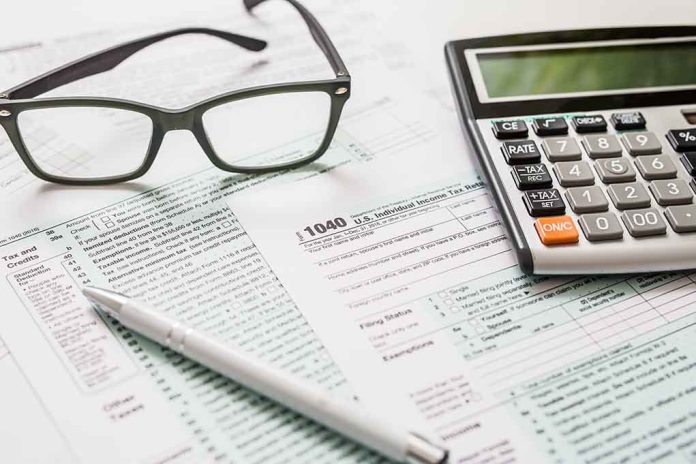
(NationRise.com) – Whether you’re hiring an accountant to help you with your taxes or doing it yourself with software, you’re likely concerned about getting a lower tax bill. It’s important to know that standard deductions aren’t the only ways you can make this happen. Plus, this advice isn’t just good for this year, but perpetually.
Try these strategies to get a lower tax bill for years to come.
Adjust Your W-4 Form
Your W-4 form is the one you submit yearly to your employer. On this form is a space to withhold additional funding for taxes. If you raise this withholding amount, you can reduce the amount you owe.
If they end up collecting more than you owe, and you don’t already owe the IRS money, they’ll distribute a refund. More clearly: if you pay more taxes out of each paycheck, your end-of-year tax bill will be lower.
Educate Yourself About Deductions
Take some time to learn about the many deductions you can qualify for. If you’re an independent contractor and work from home, you might be able to qualify for the home office tax credit. There are also certain deductions you can and should itemize, especially if the amount you spend (on something like medical expenses) exceeds the standard deduction amount.
See If You Qualify For the EITC
EITC stands for Earned Income Tax Credit, and it can help lower your tax bill. If you earned under $57,000 in 2021, you probably qualified for this. There are other factors that apply, such as marital status and dependents.
Increase Your 401(k) Contribution and College Savings
The less taxable income you have, the fewer taxes you will have to pay. An easy way to lower tax bills — which can also benefit you later — is to increase the amount you put into your 401(k), because that money is all pre-tax. You only get taxed on the remaining amount. In 2021, taxpayers could put up to $19,500 into a retirement account without it being taxed!
If you have a college savings account like a 529 plan, that can also lower your tax bill. Some states might have gift tax consequences related to this, but generally, you can divert up to $15,000 into this type of account, which will not count as taxable funds.
Consider Your FSA and/or HSA
Special medical accounts are pre-tax. If you have a Flexible Spending Account (FSA), you can put up to $2,750 into that account pre-tax, but you have to spend it all on medical and dental expenses within the allowed time period.
Health Savings Accounts (HSAs) are tax-exempt. They are especially valuable for people with high-deductible healthcare plans. Something most people don’t know is that if your employer doesn’t offer an HSA, your bank should be able to help you get one set up.
Give to Charity
Do you know that you can deduct up to $300 of non-itemized charity expenses? If you have a receipt or canceled check to prove the contribution, you can claim the deduction. If it’s prior to the end of the year and your books could look a little better, consider a charitable donation so it counts when you file your taxes.
Time Your Purchases
Similarly, make sure you consider when you purchase certain things you need. If you have your own business, try to purchase expensive things like computers before the end of the fiscal year. For your individual consideration, you might be able to make a mortgage payment early, so your December 31 payment qualifies for that year’s deductions.
With a bit of care and attention to your financial situation, you can make the most out of your tax deductions and expenses. Consider your tax situation at the end of each year, adjust where your pre-tax dollars go appropriately, and find yourself owing less taxes year after year.
Copyright 2023, NationRise.com















